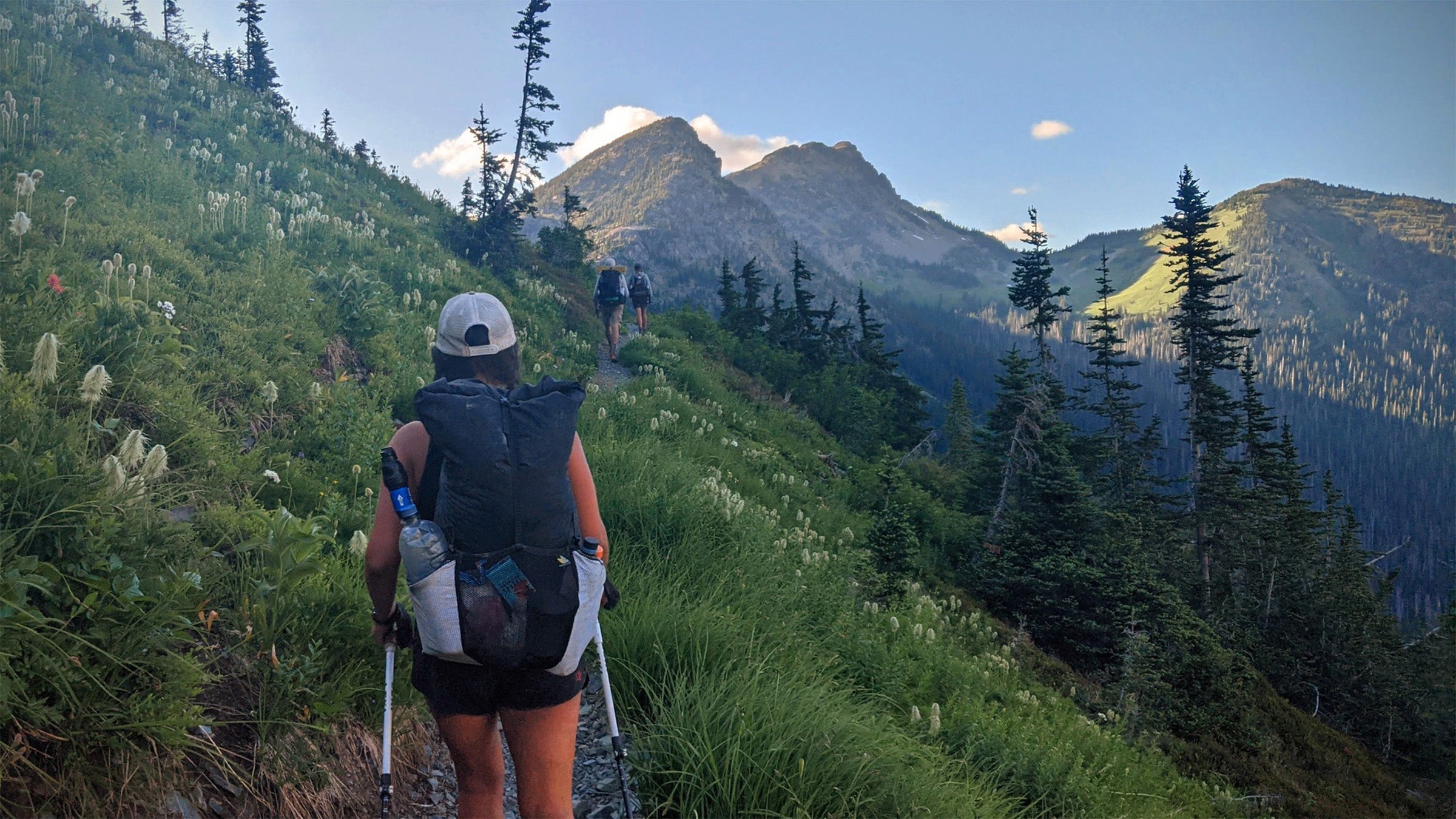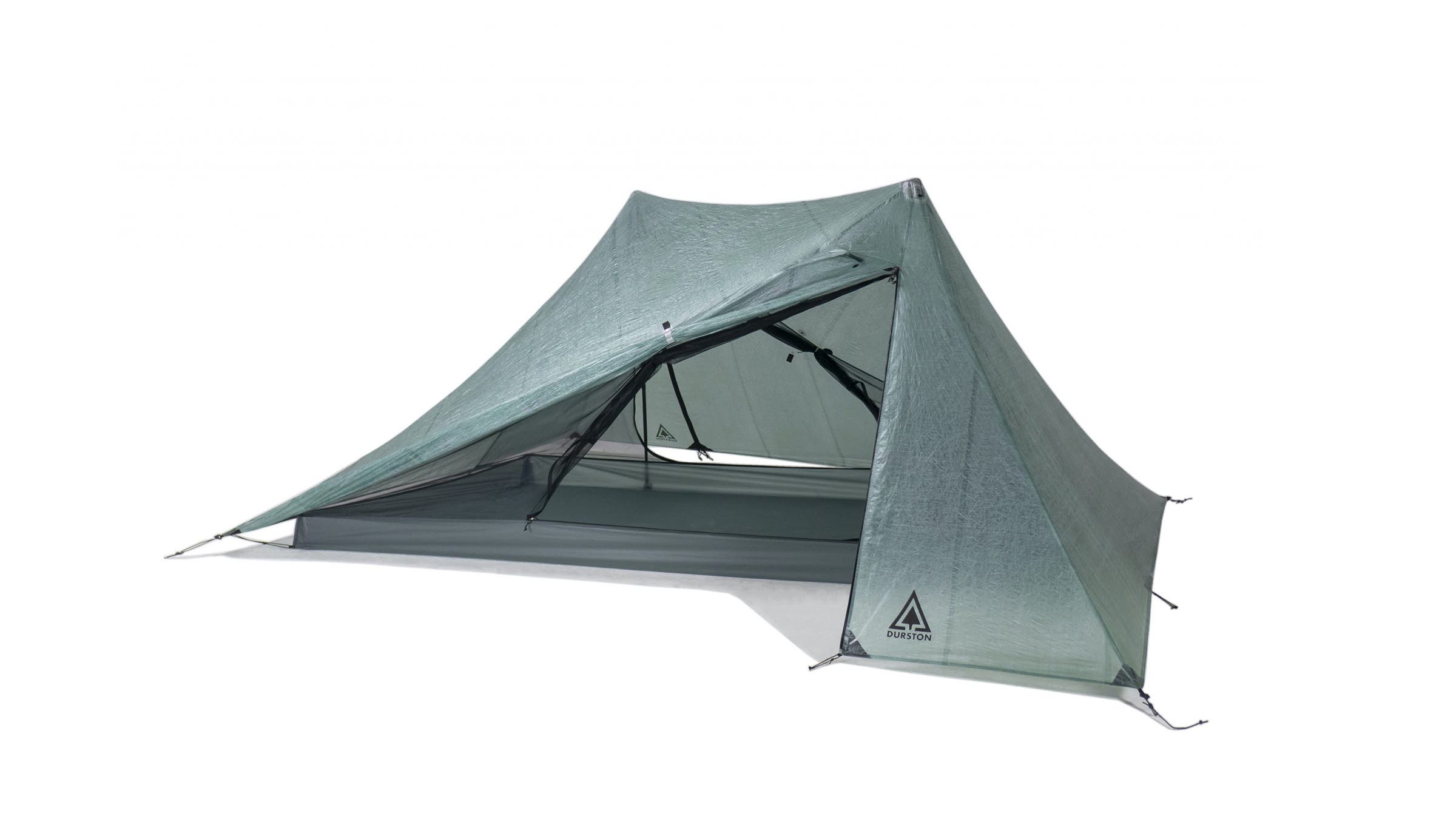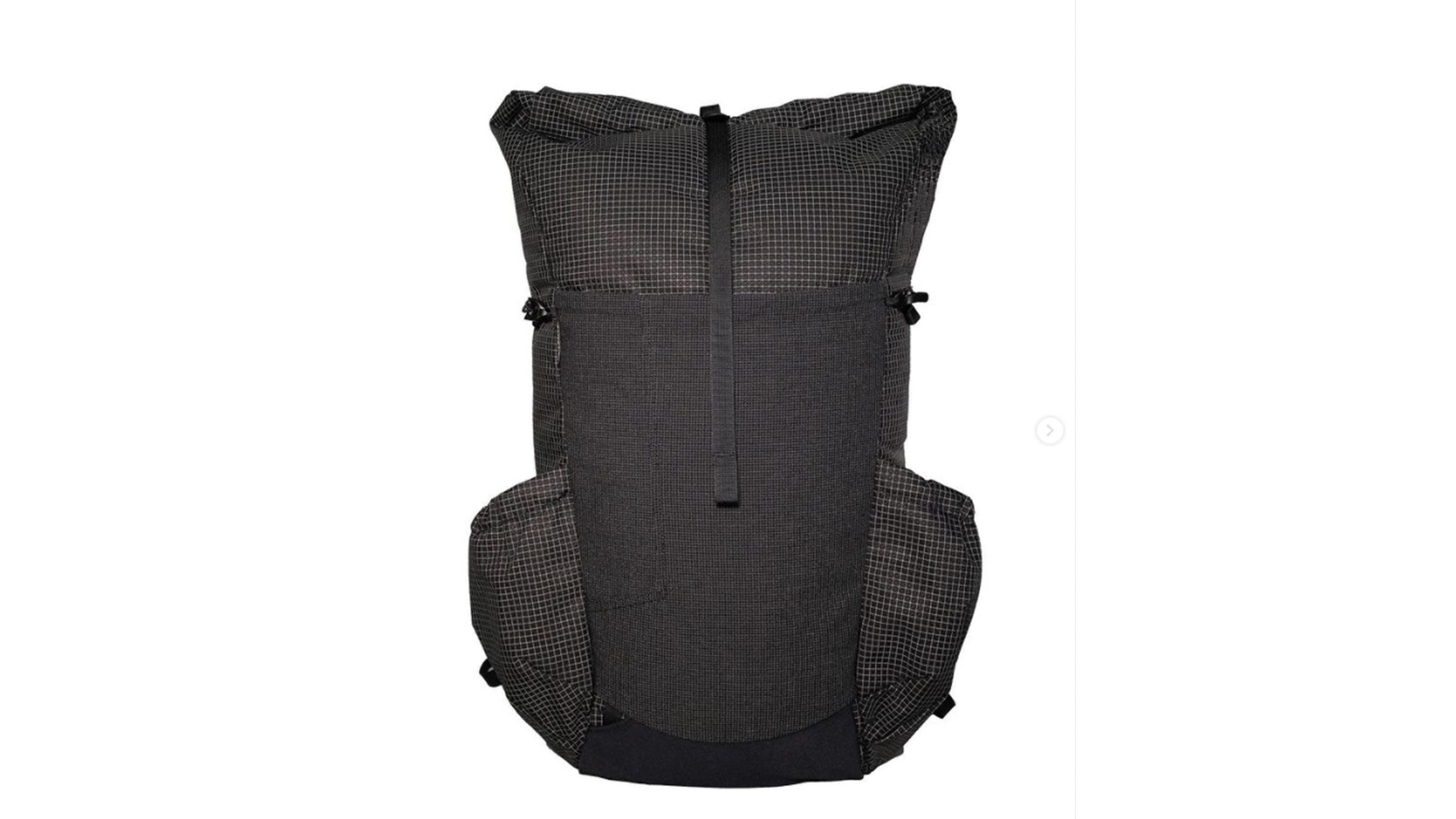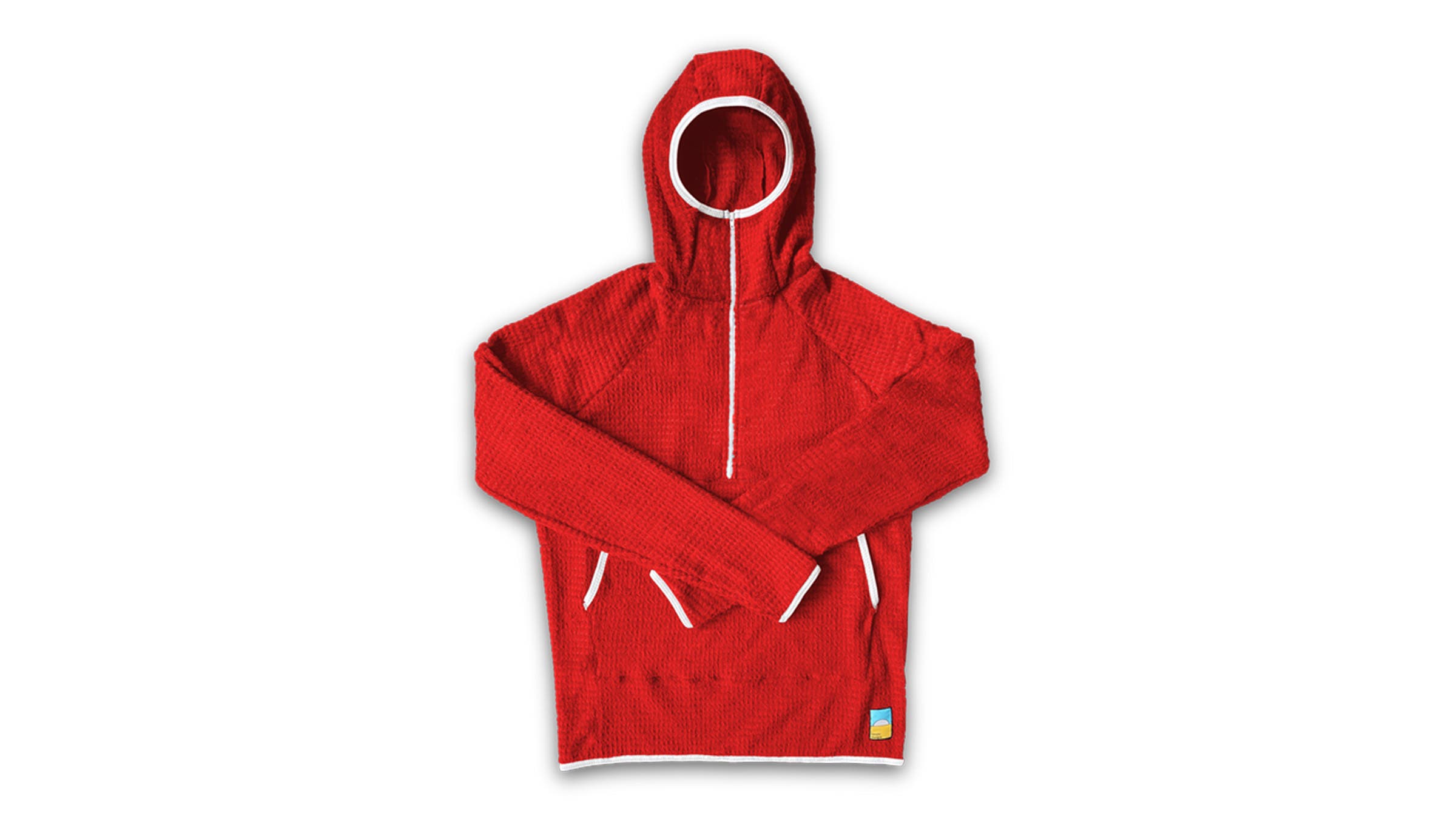The Most-Hyped Ultralight Gear Sells Out in Minutes. What Gives?

A rucksack from Nashville Pack on the trail (Photo: courtesy)
If you walk down the aisles of an outdoor gear shop, you might get the impression that ultralight gear isn’t very popular. Most brick-and-mortar stores still stock the kind of gear that a dedicated gram-counter would avoid at all costs: freestanding tents with spacious interiors, sleeping bags with full-length zippers, and backpacks with robust suspension systems. But there’s a burgeoning online ecosystem, operating outside the bounds of traditional retailers, where ultralight is king.
One place you’ll find this booming underground gear industry is on the social media platform Reddit, where the ultralight community boasts nearly half a million subscribers. Here, brands like Senchi Designs, Durston Gear, and Enlightened Equipment dominate the conversation over big names like Patagonia and Mountain Hardwear. These cottage manufacturers, often with only a few employees operating out of a basement or garage, make the equipment that’s most coveted by ultralight gearheads. As demand grows, getting your hands on the most popular products is increasingly difficult, with some companies selling out their inventories only minutes after new gear is announced.

As interest in ultralight gear grows, new resources for cottage brands have surfaced as well. Garage Grown Gear, which serves as a one-stop e-commerce store for about 120 bespoke brands, opened up shop in 2014. For new brands, GGG can introduce their products to a larger audience. With more established companies, the retailer can help them navigate increasing demand. “We are like a gateway to ultralight,” says GGG co-founder Lloyd Vogel. “We talk about three things that a brand needs to succeed—connections, time, or money. Garage Grown Gear exists for small brands to bypass some of those hurdles.”
In Vogel’s view, cottage manufacturers are a vital part of the outdoor industry. “The whole concept of ultralight is a cottage concept,” he says, adding that many innovations that are now in production by mainstream companies, like sleeping quilts or Dyneema shelters, were first proven by cottage manufacturers.
When GGG approached cottage brand Nashville Pack to offer them a spot in the store, it felt like a sign that they had made a name for themselves, say co-founders Levi Morton and Grant Leonardi. “Early on it’s a big step up to have the backing of a retailer that’s representing other respected brands,” says Morton.
For many small brands, finding customers and perfecting product design are the main hurdles to finding success. But for the buzziest companies, the real challenge lies in evolving to meet soaring demand. Since 2017, the ultralight subreddit has seen its followers jump from about 35,000 to nearly 500,000. In the same time frame, GGG’s newsletter, which offers deals and introduces new brands, has amassed 125,000 readers.
A common practice that startup ultralight brands have adopted is to offer their products during “drops.” Rather than taking pre-orders or custom orders, a brand will offer a limited number of products all at once, usually with the hopes of selling out in short order to avoid extra inventory. Once inventory is gone, the product won’t be available again until another drop is announced.

Pa’lante Packs is one company that has seen its popularity skyrocket with the growth of the ultralight community. Since its 2016 founding, Pa’lante has embraced the drop model, with many enthusiastic customers competing for a limited number of its stylish, minimalist packs. Though the buzz around when the next batch of gear will drop can make for great marketing, co-founder Andrew Bentz says the practice also just makes good business sense. “I’m not trying to make it hyped or so exclusive, but I like the drop model,’ he says. “It gives you a lot of flexibility. If I sell out, I don’t have to worry about having inventory or putting things on sale. I’m able to change features or colors with each drop.”
Some brands that partner with GGG struggle to keep up with increasing customer demand. One of the retailer’s best performers is Senchi Designs, a company focused on technical fleece jackets made out of Polartec Alpha. Though Senchi is not the first or only company to use the Alpha fabric, founder Ryan Windus gambled on utilizing it in a novel way—as a standalone garment fabric rather than an insulating material inside a shell. Ultralighters, who often value weight savings over durability, flocked to the new design: Senchi drops hundreds of hoodies at a time, selling out in about three minutes.

While the drop model can make things simpler for suppliers, some customers find the process frustrating. Adam Pereira, an ultralight hiker from Maine, says that he had his sights set on a tent from cottage maker Durston Gear, another buzzy brand that sells out quickly. “I got an email that they were going on sale, but it was still a few weeks away. I was concerned that they would sell out quickly once they were available. In the end, I took the easier path of actually going to REI and buying a Big Agnes tent that was in stock that day.”
For Pereira, crafting the perfect ultralight kit was important to him a few years ago when he was preparing for thru-hikes on the PCT and AT. Now, with a full gear closet and shifting priorities, he doesn’t find himself scrolling on Reddit or obsessing over gear the way he used to. “One great thing about ultralight gear is that you can support small companies,” he says. “But I feel like part of the ultralight philosophy is to use less and buy less, too. Once you get the message, you can hang up the phone.”
But it’s clear that many backpackers are just now getting the ultralight message, and in the garages and workshops where cottage companies design their gear, the phones are always ringing.